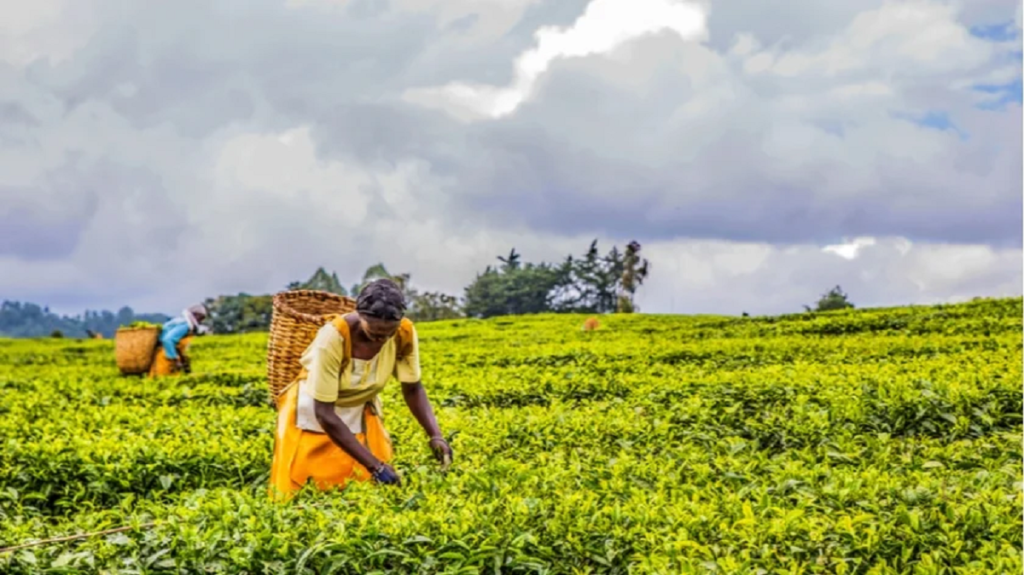This week, the Food and Agriculture Organization of the United Nations (FAO) facilitated the approval of $70 million in financing from the Global Environment Facility (GEF) to support initiatives across 28 countries. These projects aim to address key environmental issues such as urban sustainability, groundwater management, biodiversity loss, climate change, and land degradation.
“These initiatives will help to increase the resilience of those on the front lines of climate change, biodiversity loss, and land degradation,” stated FAO Deputy Director-General Maria Helena Semedo. She emphasized that these integrated agrifood system solutions will enable countries and communities to tackle complex environmental challenges, making a significant impact on lives, livelihoods, and the planet.
Sustainable Cities
Three projects in Algeria, Chile, and Zimbabwe are pivotal in advancing FAO’s work on urban agrifood systems. These projects are part of GEF’s Sustainable Cities Integrated Program, which brings together 20 countries and nine agencies, including FAO, to promote nature-positive, climate-resilient, and carbon-neutral urban developments.
- Algeria: FAO will assist in integrating ecosystem-based solutions, such as green spaces and circular waste management, into Algeria’s New Cities Presidential Initiative. The project aims to restore 17,500 hectares of green spaces and urban forests, improve practices on over 21,000 hectares of landscapes, reduce more than 715,000 metric tons of greenhouse gas emissions, and benefit 1,090,000 people.
- Chile: In four cities, FAO will enhance ecosystem-based solutions and green infrastructure for biodiversity and climate mitigation. The project targets improvements on over 1,325,000 hectares of landscapes, aims to cut over 14,900 metric tons of greenhouse gas emissions, and will benefit nearly 732,000 people.
- Zimbabwe: FAO will address ecosystem degradation and pollution in its two largest cities through urban agroforestry, ecosystem restoration, and public-private partnerships. This initiative plans to restore 300 hectares of forests and wetlands, improve practices on 136 hectares of landscapes, reduce more than 24,000 metric tons of greenhouse gas emissions, and benefit 6,000 people.
Improving Our Lands and Seas
In Central America, seven countries—Belize, Costa Rica, Dominican Republic, El Salvador, Guatemala, Honduras, Nicaragua, and Panama—will adopt a source-to-sea management approach. This initiative aims to enhance the biodiversity, water security, and Blue Economy of 12 large watersheds and adjacent marine ecosystems. The project will manage over 1.8 million hectares of protected areas, restore 300 hectares of wetlands, and benefit 350,000 people.
Fourteen Caribbean states will advance sustainable soil management through the second phase of the SOILCARE initiative. This project supports Small Island Developing States (SIDS) in managing land resources for productive and climate-resilient agrifood systems. The initiative aims to restore 28,000 hectares of agricultural lands, improve management on nearly 70,000 hectares of land, and benefit at least 6,900 farmers.
In Mauritania, a project will focus on restoring and managing landscapes for agriculture, livestock, and forestry to combat desertification and enhance biodiversity. It aims to restore 80,000 hectares of forest land, including 40,000 hectares of pasture, and mitigate 313,000 metric tons of greenhouse gas emissions, targeting 60,000 direct beneficiaries.
Bosnia and Herzegovina will see FAO and the United Nations Development Programme (UNDP) work on advancing land degradation neutrality and biodiversity conservation. The project aims to improve management of 193,000 hectares of biodiversity conservation spaces, restore 1,500 hectares of degraded agricultural lands, and benefit 100,000 people.
Climate Change Adaptation
FAO will support Angola and Tanzania through community-based approaches funded by the GEF’s Least Developed Countries Fund.
- Angola: The project will enhance resilience to climate change through sustainable land and forest management, strengthened agrifood value chains, and improved land tenure for smallholder farmers. It aims to manage 250,000 hectares of land for climate resilience, benefit 180,000 people, and train 100,000 individuals.
- Tanzania: Addressing the livestock sector’s expansion and land degradation, this project will improve land management and climate data systems. It targets the management of 20,000 hectares of land for climate resilience, benefits approximately 1.5 million people, and raises climate change adaptation awareness for 175,000 people.
FAO-GEF Partnership
As a GEF partner agency, FAO assists countries globally in addressing challenges at the intersection of agrifood systems and the environment. FAO’s active global GEF portfolio exceeds $1.4 billion, aiding more than 120 countries in projects that align with local priorities, deliver global environmental benefits, and support the Sustainable Development Goals (SDGs).
